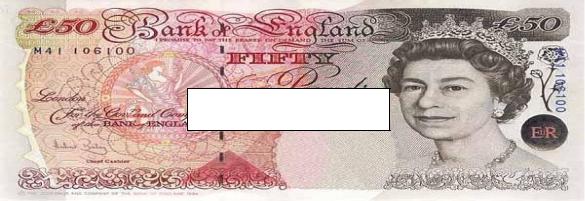
ПОСОБИЕ_English_for_economists_посл
..PDF
The sales comparison approach (comparing a property's characteristics with those of comparable properties that have recently sold in similar transactions).
The income approach (similar to the methods used for financial valuation, securities analysis or bond pricing).
However, the recent trend of the business tends to be toward the use of a scientific methodology of appraisal which relies on the foundation of quantitative-data, risk, and geographical based approaches.
An appraiser can generally choose from three approaches to determine value. The appraiser has to think about the "scope of work", the type of value, the property itself, and the quality and quantity of data available for each approach. For instance, appraisals of properties that are typically purchased by investors (e.g., skyscrapers, office buildings) may give greater weight to the Income Approach. Buyers interested in purchasing single family residential property would rather compare price, in this case the Sales Comparison Approach (market analysis approach) would be more applicable. The Cost Approach to value is most useful in determining insurable value, and cost to construct a new structure or building.
(Source: http://en.wikipedia.org/wiki/Real_estate_appraisal)
5.1.Answer the following questions.
1.What are the three approaches to value?
2.What is the recent trend in the methodology of appraisal?
3.How does the choice of this or that approach depend on the building type?
6.Say if the sentences concerning Texts from Ex. 3 and Ex. 5 are true or false.
1.Most countries do not require appraisers to be licensed or certified.
2.Liquidation value is a commonly sought standard of value in bankruptcy proceedings.
3.The three approaches to value are dependent on each other.
4.The cost approach compares a property‘s characteristics with those of comparable
properties that have recently sold in similar transactions.
5.Income approach is used when building skyscrapers and office-buildings.
6.The sales comparison approach is also called the market analysis approach.
61

6. Study, translate into Russian the following terms and match them with their definitions.
Word |
|
Definition |
|
|
|
|
|
1. appraisal |
|
a. to give smb. official permission to do, own, or use smth. |
|
|
|
|
|
2. transaction |
|
b. a sum of money that is paid as bail. |
|
|
|
|
|
3. mortgage |
|
c. a thing of value, especially property, that a person or company owns, which |
|
|
|
can be used or sold to pay debts. |
|
|
|
|
|
4. to license |
|
d. a deal, a piece of business that is done between people, especially an act of |
|
|
|
|
|
|
|
buying or selling. |
|
|
|
|
|
5. income |
|
e. the activity of buying and selling or of exchanging goods or services between |
|
|
|
people or countries. |
|
|
|
|
|
|
|
|
|
6. assets |
|
f. any of the units of equal value into which a company is divided and sold to |
|
|
|
raise money. People who own this securities receive part of the company‘s |
|
|
|
|
|
|
|
profit. |
|
|
|
|
|
7. liabilities |
|
g. a judgement of the value, performance or nature of somebody or something. |
|
|
|
|
|
8. bond |
|
h. the amount of money that a person or company owes. |
|
|
|
|
|
9. share (in |
|
i. a legal agreement by which a bank or similar organization lends you money to |
|
smth.) |
|
buy a house, etc., and you pay the money back over a particular number of |
|
|
|
years. |
|
|
|
|
|
|
|
|
|
10. trade |
|
j. the money that a person, a region, a country, etc. earns from work, from |
|
|
|
investing money, from business, etc. |
|
|
|
|
|
|
|
|
|
7. Match the following words with their synonyms.
 1. transaction
1. transaction
 2. to transcend
2. to transcend
 3. to transfer (the property)
3. to transfer (the property)
 4. to transform
4. to transform
 5. to postpone
5. to postpone
 6. money
6. money
 7. limit
7. limit
 8. income
8. income
 9. business
9. business
 10. tradesman
10. tradesman
To put off
Trade
To convert
Cash
To sign over
Deal
Restriction
Earnings
Shopkeeper
To exceed
62

FINAL TASKS
1. Fill in the gaps using the words below:
Mortgage, |
1. This ______ is vacant, you can rent or buy it. 2. He has almost |
apartments, |
paid off a ______ and now he can buy a new car. 3. ______ houses |
properties, |
are very popular in Great Britain. 4. They evicted their ______ for |
residence, |
non-payment for rent. 5. Most ______ now own at least one car. 6. |
dwelling, |
The official ______ of the British Prime Minister is Downing Street, |
residents, |
10. 7. The company ______ equipment necessary for production |
semi-detached, |
process. 8. You can visit the whole castle except for private ______ . |
leases, tenants, |
9. There were confrontations between local ______ and the police. |
households |
10. There are few empty ______ in the area. |
|
|
2.Translate the following sentences into English.
1.Цены на жилье (house prices) постоянно растут. 2. Они арендуют землю у местного фермера. 3. Помещения этого здания сдаются в аренду жильцам. 4. Мне нравится эта квартира, но она очень дорогая. 5. Жители этого дома тщательно следят за чистотой и порядком в подъездах. 6. Это здание является собственностью государства. 7.
Они приобрели имущество (to obtain property) по доступной цене. 8. Проект застройки нового микрорайона (a new development) будет включать в себя 25 жилых домов и некоторое количество офисов. 9. Мы хотели бы остановиться в двухуровневом номере. 10.
Ежемесячно он платит ипотечный кредит (mortgage loan) в размере 30 тысяч рублей. 11.
Ремонт был сделан предыдущим жильцом (арендатором).
63
3.Fill in the gaps with necessary prepositions.
1.Don‘t worry! Try to speak _____ the director about the increase ______ your salary. 2. We have fallen ______ rice, please, go and buy some. 3. He has about $1000 _____ his account.
4.They succeeded ______ their business ______ the beginning ______ the 20th century. 5. His new pair ______ shoes cost a lot ______ money. 6. How much money do you have ______ you?
7.How would you like to pay the bill: ______ cash or ______ the credit card? 8. A company sent an invoice ______ $500 ______ a customer. 9. The meal was very delicious, let‘s ask
______ the bill. 10. During crisis time it is usually rather difficult to get ______ money ______
the bank. 11. The bill ______ the purchase was very expensive.
5. Find all the words and give their translation.
D |
W |
E |
L |
L |
I |
N |
G |
M |
G |
|
|
|
|
|
|
|
|
|
|
P |
T |
E |
N |
A |
N |
T |
E |
O |
I |
|
|
|
|
|
|
|
|
|
|
R |
L |
E |
A |
S |
E |
L |
S |
R |
H |
|
|
|
|
|
|
|
|
|
|
O |
L |
E |
N |
D |
R |
A |
T |
T |
G |
|
|
|
|
|
|
|
|
|
|
P |
F |
X |
P |
Q |
E |
N |
A |
G |
F |
|
|
|
|
|
|
|
|
|
|
E |
L |
O |
R |
R |
N |
D |
T |
A |
E |
|
|
|
|
|
|
|
|
|
|
R |
A |
W |
I |
S |
T |
U |
E |
G |
D |
|
|
|
|
|
|
|
|
|
|
|
|
|
|
|
|
|
|
|
|
T |
T |
N |
C |
C |
O |
S |
T |
E |
C |
|
|
|
|
|
|
|
|
|
|
Y |
V |
W |
E |
H |
O |
U |
S |
E |
B |
|
|
|
|
|
|
|
|
|
|
A |
P |
P |
R |
A |
I |
S |
E |
R |
A |
|
|
|
|
|
|
|
|
|
|
1.__________ |
6.__________ |
11._________ |
2.__________ |
7.__________ |
12._________ |
3.__________ |
8.__________ |
13._________ |
4.__________ |
9.__________ |
14._________ |
5.__________ |
10._________ |
15._________ |
64

4. Think of the situations where you can use the following idioms.
To find a new lease of life, a hot-house plant, one‘s hour has come, a house divided against itself, a house of cards, the house of god, a private eye, to take the bull by the horns, to press one‘s luck, bad penny, to cost a pretty penny, not to care a twopence, to cut somebody off with a shilling, long shillings, a pound in the purse is worth two in the book.
6. Speaking. Make a presentation on the following topic:
6.1. Compare the prices of various types of dwellings in different countries. Analyze real estate market in your country and abroad (your city and other cities of Russia). Rank the countries according to the real estate price level. For additional information search the Internet resources (e.g.
www.nyhabitat.com).
6.2. Fill in the table. Find the price level of the given below real estate types.
Real Estate Type |
Kazan |
Moscow |
Novosibirsk |
Your town/ city |
One-room flat
Two-room flat
Tree-room flat
Cottage
Commercial real estate
65

Unit 5.
Urban Economics
Text 5A
1.Before you start.
How do you understand the term urban economics?
What scope of problems does urban economics study?
2.Read the words and learn them by heart. Make up your own sentences with them.
1.Urban – городской
2.Urban economics – экономика городов
3.To seek – искать; разузнавать
4.Pattern – образец, пример, схема
5.To vary – меняться, изменяться, расходиться
6.To affect – влиять
7.Accessibility – доступность, досягаемость
8.Commodity – продукт, товар, предмет потребления
9.In conjunction with – в соответствии с, в комплексе с
10.Efficiency – эффективность, действенность
11.Rural – сельский, деревенский
12.Welfare – благосостояние, благополучие, достаток
13.Interdependency – взаимосвязь, зависимость друг от друга
14.Disparity – несоответствие, неравенство
3. Read the text 5A, translate it and compare your ideas in ex.1 with the facts.
Urban economics
Urban economics is broadly the economic study of urban areas; it
involves using the tools of economics to analyze urban issues such as crime, education, public
66

transit, housing, and local government finance. More narrowly, it is a branch of microeconomics that studies urban spatial structure and the location of households and firms.
Urban economics is divided into six related themes: market forces in the development of cities, land use within
cities, urban transportation, urban problems and public policy, http://www.urbaneconomics.org/meetings/i housing and public policy, and local government expenditures and taxes.
Market forces in the development of cities. Market forces in the development of cities relates to how the location decision of firms and households causes the development of cities. The nature and behavior of markets depends somewhat on their locations therefore market performance partly depends on geography. If a firm locates in a geographically isolated region, their market performance will be different than a firm located in a concentrated region. The location decisions of both firms and households create cities that differ in size and economic structure. When industries cluster, like in the Silicon Valley in California, they create urban areas with dominant firms and distinct economies.
Land use. Looking at land use within metropolitan areas, the urban economist seeks to analyze the spatial organization of activities within cities. In attempts to explain observed patterns of land use, the urban economist examines the intra-city location choices of firms and households. Considering the spatial organization of activities within cities, urban economics addresses questions in terms of what determines the price of land and why those prices vary across space, the economic forces that caused the spread of employment from the central core of cities outward, identifying land-use controls, such as zoning, and interpreting how such controls affect the urban economy.
Transportation and economics. Urban transportation is a theme of urban economics because it affects land-use patterns as transportation affects the relative accessibility of different
sites.
Housing and public policy. Housing and public policy relate to urban economics as housing is a unique type of commodity. Because housing is immobile, when a household chooses a dwelling, it is also choosing a location. Urban economists analyze the location choices of households in conjunction with the market effects of housing policies.
Government expenditures and taxes. The final theme of local government expenditures and taxes relates to urban economics as it analyzes the efficiency of the fragmented local governments presiding in metropolitan areas.
67

Besides urban economics there can be distinguished so called rural economics, which is the study of rural economies, including: farm and non-farm industry; economic growth, development, and change; size and spatial distribution of production and household units and interregional trade; land use; housing and non-housing as to supply and demand; migration and (de)population; finance; government policies as to development, investment, regulation, and transportation; general-equilibrium and welfare analysis, for example, system interdependencies and rural-urban income disparities.
(Source: http://en.wikipedia.org/wiki/Urban_economics)
4.Say if the sentences concerning Text 5A are true or false.
1.Urban economics is broadly the economic study of rural areas.
2.Urban economics involves economic tools to analyze crime, education, housing, etc.
3.Urban economics is a branch of macroeconomics.
4.Urban economics is divided into three related themes.
5.Geographical location of the firm does not influence its market performance.
6.The urban economist seeks to analyze the spatial organization of
activities within the cities.
7.Transport does not affect accessibility of different sites.
8.Housing is a unique type of commodity, but it is mobile and that‘s why location is unimportant.
5.Answer the following questions.
1.What is urban economics in its broad sense?
2.What is a narrower definition of urban economics?
3.What do modern cities represent?
4.How many related themes is urban economics divided into? What are they?
5.How does the geographical location influence the nature and behaviour of the markets?
6.What is the scope of work of the urban economist?
7.What is the role of transportation in the development of the cities?
8.What does rural economics study?
68

6. Give Russian equivalents of the following words and word combinations from Text 5A.
Urban areas, tools of economics, urban issues, public transit, local government, urban spatial structure, expenditures and taxes, market forces, market performance, intra-city location, metropolitan area, economic growth, spatial distribution of production.
7. Sort out the following verbs and idioms denoting a degree of success in business under
three headings:
Success |
Survival |
Failure |
|
|
|
|
|
|
|
|
|
Flourish, fail, go bust, thrive, be a success, reach a break-even point, boom, be head over ears in debt, lose count of millions, roll in money, make a considerable profit, succeed, be a failure, breakeven, keep one‘s head above water, get a business off the ground, prosper, keep/stay afloat, sink, be a flop, survive.
8. Read and find Russian equivalents to the following English proverbs and sayings. Express your thoughts on these topics and explain the meaning of them.
Better give a shilling than lend a half-crown.
Better go to bed supperless than rise in debt.
Bind the sack before it be full.
The busiest man finds the most leisure.
Business before pleasure.
The busy have no time for tears.
By doing nothing we learn to do ill.
Creditors have better memories than debtors.
Text 5B
1.Before you start.
Can you name any cities with highly-developed economies?
What countries can be called developing?
69

2.Read the words and learn them by heart. Make up your own sentences with them.
1.To generate – образовывать, генерировать, вырабатывать
2.Wealth – богатство, изобилие
3.To decline – опускаться, понижаться
4.To complicate – осложнять(ся)
5.To circumscribe – ограничивать
6.Determinant – определитель, решающий фактор
7.To determine – определять, устанавливать, обусловливать
8.To preordinate – предопределять
9.To shape – формировать, придавать форму
10.Access – доступ, подход, возможность
11.To alter – изменять, переделывать
12.To solidify – укрепляться, отвердевать
13.To emerge – появляться, показываться
14.Imprint – след, отпечаток
15.Tough – жесткий, плотный, упругий, сильный
3. Read the text 5B, translate it and compare your ideas in ex.1 with the
facts.
Five Principles of Urban Economics
Why do some cities grow faster than others? Why do some generate more wealth? Why do some decline? No simple answers exist, and much remains open to speculation. More than 50 years of research allows to state certain principles about the economies of cities.
Cities are first and foremost places – agglomerations of people – rather than economic and political units. That fact complicates the study of urban economies. Also, cities‘ power to make economic policy is limited. (City-states like Singapore are an exception.) The policies that most significantly affect urban economies usually come from higher levels of government. This doesn‘t mean that local policies don‘t matter, but it does mean that their ability to affect broad economic and geographic trends is sharply circumscribed. Finally, that cities aren‘t economic and political units in the way countries or even states are means that they face particularly fierce competition for mobile resources, especially for talent and brains. After all, it‘s much easier to move your residence or your business to a nearby city than to move it to another country or
70
